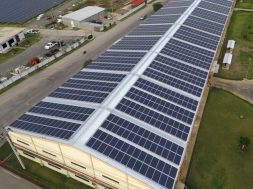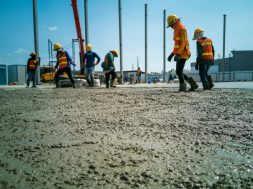Smart cities raise demand for advanced lift technologies

Manish Mehan, CEO & MD of TK Elevator India, discusses how urban expansion drives demand for advanced lifts, improving safety, efficiency, and sustainability.
India’s rapidly growing population and urbanisation necessitated the development of smart cities. Over 100 cities in India have already participated in the Smart Cities Mission, with 91 percent of 8,075 projects completed by December 2024, representing an investment of ₹1.47 lakh crore.
The construction industry is at the forefront of this shift towards a more connected and sustainable society. This industry focuses on creating spaces for people to live, work, and thrive, ranging from residential complexes to hospitals, commercial centres, and retail spaces.
The redevelopment and modernisation of existing buildings are among the top priorities, with metro cities setting the pace. These cities effectively optimise land use and address infrastructure challenges. Vertical transportation, which ensures safe and smooth movement within buildings, is likely the most important component of this transformation. As cities grow upward, there is a significant increase in demand for advanced lifts.
Elevators are no longer associated with convenience but rather as a modern urban fabric for high-rise buildings. According to recent projections, the Indian lift market is expected to reach USD 7.79 billion by 2030. The integration of new technology and mechanical components improves both lift safety and passenger experience. Modern lifts are outfitted with sensors and cloud-based monitoring platforms, allowing for real-time data analysis. These systems can predict maintenance requirements and reduce lift downtime by up to 50 percent, allowing for uninterrupted service in high-traffic areas.
Similarly, the TWIN lift system operates two independent cars from a single shaft. It doubles capacity without the need for more space. This design is especially useful in densely populated urban areas where optimising space is critical. The expansion of the lift industry is inextricably linked to India’s overall economic development goals. Increased investments in urban infrastructure, combined with local manufacturing initiatives under the ‘Make in India’ campaign, have improved employment, innovation, and sustainability in the industry.
Modern lifts can help to promote sustainable urban development by innovating in the more functional (e.g., superior user experience) and visual (e.g., sleek design) aspects of vertical mobility in modern cities. For example, the use of regenerative drives and LED lighting has already reduced energy consumption and costs.
As India’s cities become smarter and more connected, advanced lift systems will play an increasingly important role. Investments in cutting-edge technology, combined with a commitment to sustainable practices, are required to promote overall equality in urban living and efficient mobility within buildings.
For more details, visit: https://www.tkelevator.com/in-en/
Cookie Consent
We use cookies to personalize your experience. By continuing to visit this website you agree to our Terms & Conditions, Privacy Policy and Cookie Policy.








